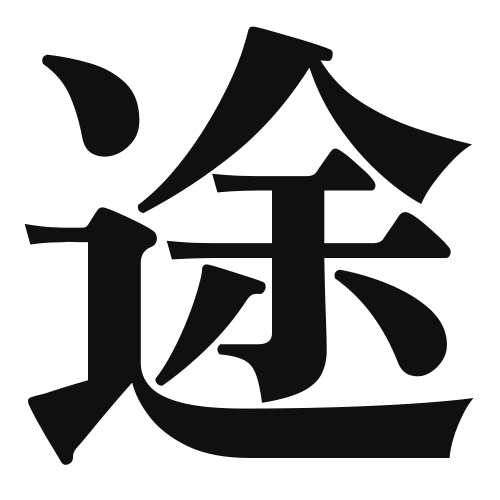1. Overview of Meaning
The kanji “途” (to) generally means “way,” “path,” or “route.” It signifies a course of action or a method to achieve something.
2. Origin and Radical
Formation of the Kanji: The kanji “途” is a compound character, which means it is formed by combining different elements. It consists of the radical “辶” (which relates to movement) and the character “土” (meaning “earth” or “ground”). This combination suggests a path or route on the ground.
Radical: The radical of “途” is “辶,” which is associated with movement and travel.
3. Examples of Usage
Common Words and Phrases: Some frequently used words that include “途” are “途上” (tojou – on the way) and “途絶” (tozetsu – interruption).
Example Sentences in Daily Conversation:
- 私たちは新しい途を探しています。 (Watashitachi wa atarashii to o sagashiteimasu.) – We are looking for a new path.
- 彼は成功への途を歩んでいます。 (Kare wa seikou e no to o arundeimasu.) – He is on the path to success.
4. Synonyms and Antonyms
Similar Kanji: A similar kanji is “道” (dou), which also means “way” or “path,” but it often refers to a broader concept of a way of life or philosophy.
Opposite Kanji: An antonym could be “障” (shou), which means “obstacle” or “hindrance,” representing something that blocks a path.
5. Cultural and Historical Background
Relation to Japanese Culture: The concept of “途” is significant in Japanese culture, where the journey or path one takes is often emphasized in literature and philosophy.
Proverbs and Idioms: An example of an idiom is “途方に暮れる” (tohou ni kureru), which means to be at a loss or to be in a difficult situation, literally translating to “to be lost on the way.”
